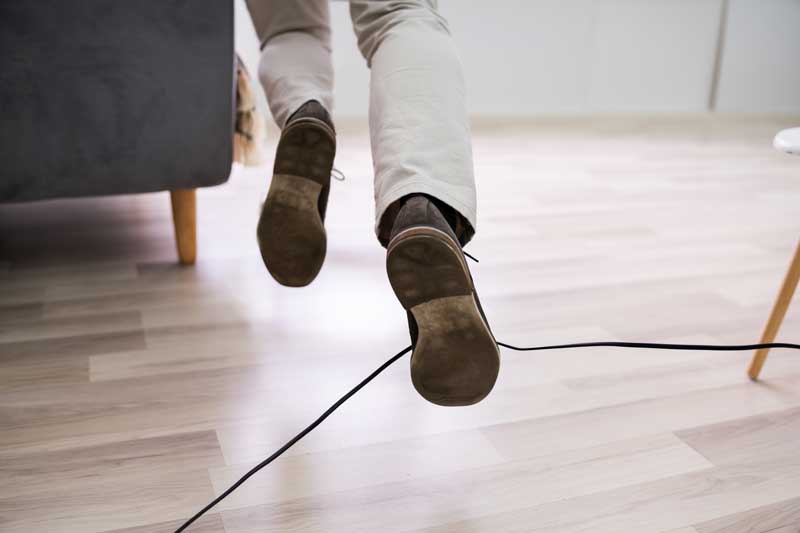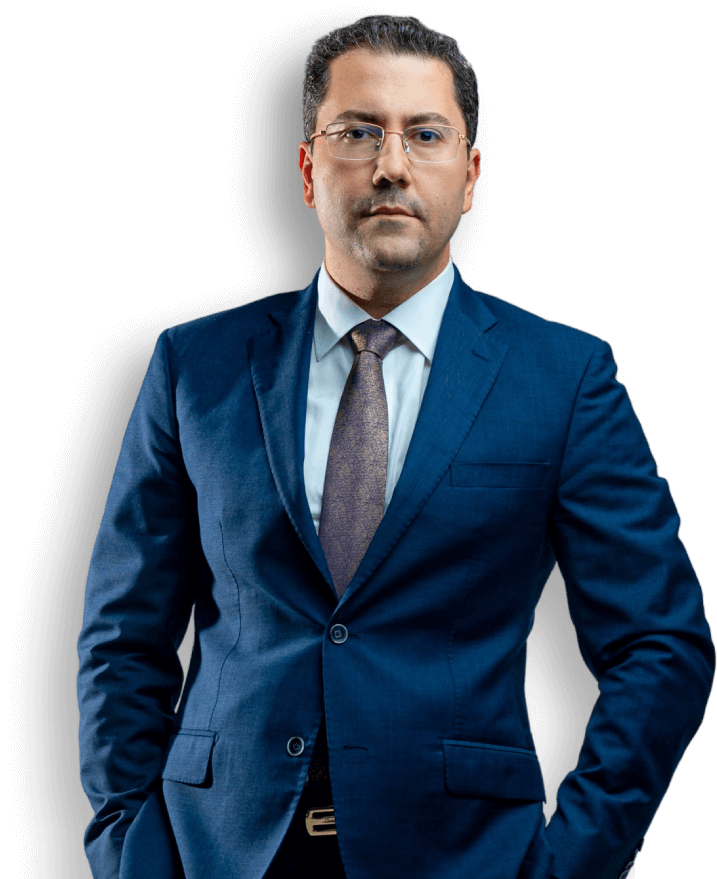The words “negligent” and “negligence” are common words heard in the legal field. Negligence is the legal basis for all personal injury lawsuits. Negligence is a legal topic that has several elements a plaintiff must be required to prove when bringing a lawsuit to court. Negligence cases can be best described by carelessness on behalf of the defendant. Carelessness is very common and can arise in many different situations. However, negligence requires the plaintiff to prove the defendant had a specific duty to them. Therefore, it is very important to determine if your case has merit to be brought to court. If you believe you have a negligence claim, contact Heidari Law Group as soon as possible to discuss your claim with an experienced personal injury attorney in California or Nevada.
Ordinary Negligence
Generally, negligence occurs when a defendant fails to act within the standard of care and fails to take reasonable measures to protect others (plaintiff) from foreseeable harm. Negligence is a very broad topic and commonly exists in our everyday lives, whether it is criminal or civil. Common scenarios are demonstrated below:
Criminal Negligence is when the defendant ignores a blatantly obvious risk. Many states have ruled the requisite intent should be “recklessness.” In contrast to civil negligence, criminal negligence is more severe and is usually a claim brought by the government. Examples of criminal negligence:
- A nurse forgets to feed the patient who needs assistance to eat, and the patient passes away from starvation.
- A driver is driving while intoxicated. While speeding, she hits the plaintiff’s car, and the plaintiff becomes paralyzed due to the accident.
- This is a very common criminal negligence case that is litigated in Los Angeles.
- A father leaves his five-year-old daughter in the car on a hot summer day as he goes grocery shopping. (child endangerment)
Civil Negligence is more common than criminal negligence. It is when the defendant acts below the standard level of care (referred to as “due diligence”). This is measured by the conduct of a reasonable person in a similar situation. Examples of civil negligence:
- An employee at a grocery store is mopping the floor and forgets to put a “wet floor” sign on the floor. A customer slips and twists her foot.
- A homeowner who has guests over for her birthday fails to tell her guests that one of the floorboards is loose. A guest falls and breaks his hip after he slipped on the loose floorboard.
- A homeowner’s roof shingle was blown by the wind, and hit a pedestrian walking on the sidewalk. In the past, windstorms had caused the homeowner’s shingles to fall, and the homeowner was aware his roof needed repair.
How Does a Plaintiff Prove a Negligence Claim?
In order to prove a negligence claim, four elements must be met. These elements have more detailed exceptions and requirements for specific cases.
- Duty: Did the defendant have a duty to the plaintiff?
This is where the standard of care is taken into account. Each special relationship has a different standard of care. For example, a caretaker has an affirmative duty to protect their patients. Professionals (e.g. doctors, lawyers, electricians) are held to the standard of care of a good standing professional in the community. A hotel has a duty to make known or repair any known unsafe conditions. A product manufacturer is strictly liable (absolute liability) for any product defects.
- Breach: Did the defendant breach by not performing under the standard of care? A breach is usually determined by a jury.
- Causation: Did the defendant’s failure to act caused the plaintiff injury?
- But for test: but for defendant’s act, would plaintiff have been injured?
- Proximate cause: Was plaintiff injury foreseeable as a result of defendant’s breach?
- Damages: Did the plaintiff incur any injury as a result of the defendant’s breach?
Actual injury is required for negligence. Damages include medical expenses, lost wages, pain, and suffering, etc. The damages must be calculated with certainty and foreseeable.
All elements above must be proven in order for the plaintiff to receive compensation for their injuries. If a defendant fails to prove negligence in their personal injury claim, they will be unable to recover any compensation for damages.

Gross Negligence
Gross negligence is typically referred to cases that are more serious than regular negligence. This occurs when the defendant fails to show any lack of care when there are obvious risks. These obvious risks could be understood by a reasonable person. To prove gross negligence, the plaintiff would have to show the four elements above, and prove how the defendant’s conduct was “extreme.” California courts have determined that in order to bring a gross negligence case, the plaintiff has to show that defendant has violated a statute. If there is no violation of a statute, then the plaintiff could bring a regular negligence claim.
What if the Plaintiff Was Also Negligent?
Contributory Negligence
Some states have contributory negligence jurisdictions that rule that if the plaintiff contributed to his injuries, he will be barred from bringing a negligence lawsuit to court. Even if the plaintiff is at fault for just 1%, some courts will decline to award damages.
Comparative Negligence
California and Nevada are comparative negligence jurisdictions rather than an “all or nothing” contributory negligence jurisdiction. Under a comparative negligence jurisdiction, the plaintiff would still be awarded damages even if he contributed to his damages. Plaintiff damages would be decreased by the percentage he is at fault. For example, if the plaintiff’s damages were $10,000, but he was at fault for 20%, he would only recover $8,000.
It is also important to note that different states have enacted statutes of limitations, which place a time limitation on when you can bring your claim to court. For example, the statute of limitations for a negligence claim in California would be different than in Nevada. Our qualified attorneys at Heidari Law will look into your accident and negligence claim to ensure you get just compensation for your injuries. Contact an experienced auto accident attorney today for help.
A negligence lawsuit may seem straightforward at first, but each circumstance has its own requirements and exceptions under California law. Contact the Heidari Law Group for a reliable personal injury attorney that is experienced in California’s and Nevada’s negligence laws. We have offices in Los Angeles, Fresno, Sacramento, Irvine, and Las Vegas. Heidari Law Group will be there to assist you. Call for a free case evaluation today.
Disclaimer: This blog is created by Heidari Law Group for educational purposes. This article provides a general understanding of the law. It does not provide specific advice. By using this site and reading through this blog, there is no attorney-client relationship created between you and any member of Heidari Law. Further, due to the constant change of the law, some parts of the information above may no longer be good law.



